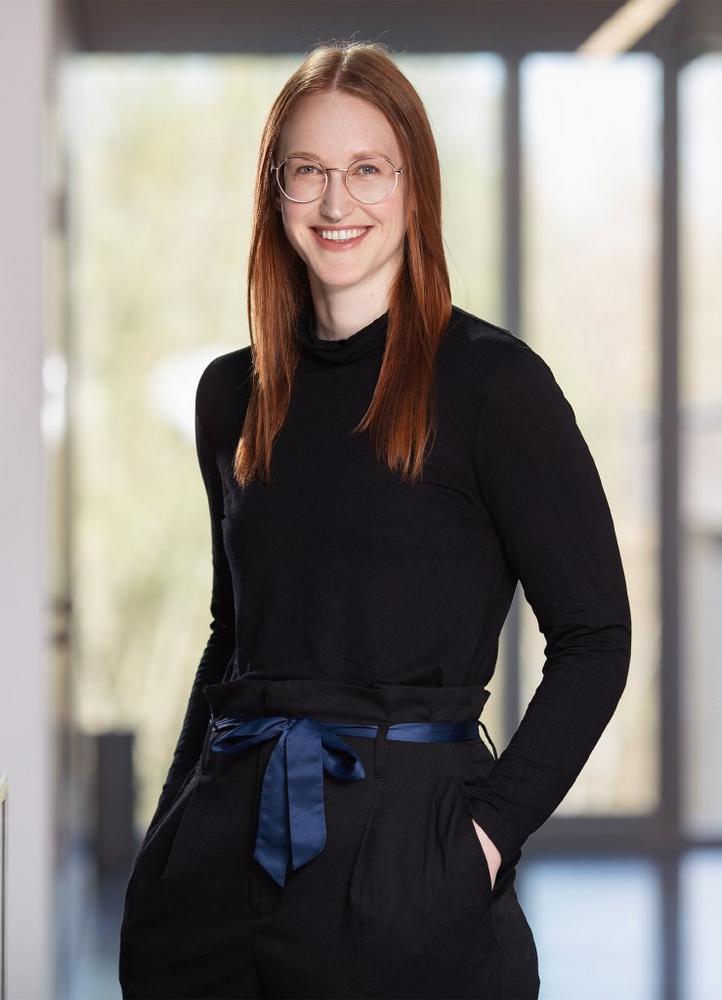Are you still scrolling or have you already paid?

Breaking News:
Kathmandu Nepal
Mittwoch, März 12, 2025

As a teenager, she became fascinated by the human psyche: “I first heard about the Milgram experiment in a science magazine. The experiment was designed to explain why people killed and tortured others during the Second World War.” This was simulated in a psychological experiment in which ‘teachers’ could administer increasingly strong electric shocks to their ‘students’ when they made mistakes, in part driven by authoritarian instructions from a third party. From that point on, Alida wanted to understand what goes on in people’s minds. She then approached her current research focus in her first academic post.
She began her psychology studies at the Ludwig Maximilian University of Munich. In her bachelor’s thesis, she came across the connection to social media. The topic: How does mobile phone use affect well-being? Just like that, the young woman found herself in the broad field of digitalization. Professor Martin Meißner, then still at the Zeppelin University in Friedrichshafen, was looking for support for his team in the field of social media. The two had crossed paths before. When he accepted the professorship for Digital Marketing at TUM Campus Heilbronn, she moved with him to the ‘Käthchenstadt’: “The center structure is very inspiring; researchers from different disciplines come together here.”
Shadow and light
Alida is constantly inspired by developments in modern technologies. That starts with the classic mobile phone: “Using it helps people to come out of isolation. Take, for example, a queer person in a small Belarusian village – for them, it is of course extremely valuable to be able to meet like-minded people via social media.” On the other hand, escapism also harbors dangers: “Mobile phone use can also become addictive – people need an ever-higher dose to experience the same effects.” This is how the researcher began to analyze relationships in social media more closely.
“I distinguish four layers: social media can offer content synchronously or asynchronously. Synchronous means that we interact in real time, for example in livestreams or virtual worlds like Fortnite. Asynchronous is the classic comment function on Instagram or YouTube, where content is available at any time and consumers then react to it.” These categories relate to the context. However, today’s payment functions also allow for two categories of monetization: “We have memberships and gifts.” While memberships usually involve a monthly fee, gifts are one-time payments that the follower grants to their idol.
According to the psychologist, memberships indicate a stronger bond, if only because of the monthly monetization. She combed through previous publications on the subject for her analysis. Her findings: the majority of specialist literature comes from Asian countries and deals with gifts, while memberships are rarely mentioned there. The situation is different in the Americas, where there are more observational studies on memberships, particularly from the Patreon platform. “But there are only a few studies that really try to quantitatively determine how many memberships there are and how much influencers earn from them. There is very little information, aside from the company information we have from Patreon, OnlyFans, Substack or YouTube,” explains Alida.
Reach pays off
The figures also show: “As an ordinary person, you can’t make any money from it. Of course, if you already have several million followers on Instagram, it’s much easier.” One example that made headlines was actress Bella Thorne. In 2020, she opened a channel on the service OnlyFans, which is often used for pornographic content. Within 24 hours, she had earned over a million euros from it. After two weeks, the figure had already reached two million. This led OnlyFans to change its terms of use and the way it pays out. Previously, it paid out immediately; now it always pays out at the end of the month.
How do the power relations change with increasing reach? “In traditional social media, we have the relationship between influencers and followers. The closeness or friendship is perceived by followers, but not by influencers,” explains the researcher, and continues: “Now, through memberships, we have reciprocity in this relationship. This means that followers can exactly say what content they want.” As a rule, there is also an opportunity for interaction behind the paywall and customers can then give feedback on the videos and thus influence the topics.
Escaping the zeitgeist
According to Alida Volkmer, this shift in power is also changing the content of posts: “If enough followers pay monthly, influencers become less dependent on algorithms and sponsors and can post content that doesn’t necessarily correspond to the zeitgeist.” At the same time, new platforms like Mastodon are emerging. According to Alida, this is a countermovement to the omnipotence of social media owners, such as in the case of Elon Musk and Twitter, today X. The key feature: Mastodon is decentralized; everyone can define his or her own environment and rules. This decentralized aspect will be the main topic of her next research.
Her current article on paid memberships and gifts is among the top hits on Google Scholar: “Google Scholar’s algorithm has been very kind to us. If you enter the search terms, ‘Live Streaming Giving’ or ‘Live Streaming Social Media Giving’, we come up in first or second place.” The young woman would like to stay in academia: “The topics fascinate me, especially socio-psychological components such as fake news and disinformation.” But she also has a backup plan: “Sometimes I dream of founding my own social media platform that incorporates everything I’ve learned,” she says with a laugh.
Die TUM Campus Heilbronn gGmbH
Bildungscampus 2
74076 Heilbronn
Telefon: +49 (0) 7131 264180
Telefax: +49 (7131) 645636-27
https://www.chn.tum.de/de
![]()